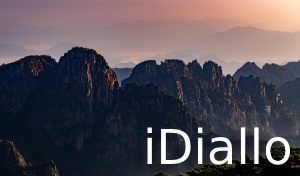I used to agonize over every word I published here, operating under the belief that the internet never forgets. Yet years later, a large number of links embedded in my old posts now lead to abandoned domains. Their content vanished without a trace, not even archived in the Wayback Machine. The same medium I feared for its permanence has proven so fragile.
Remember SOPA, the Stop Online Piracy Act. If the name means nothing to you, you’re not alone. The law was proposed in 2011, the bill claimed to combat piracy but threatened to criminalize everyday online activities online. It was effectively going to transform internet providers into surveillance gatekeepers. Then, on January 18, 2012, something extraordinary happened. Websites like Wikipedia went dark in protest. Developers and ordinary users united, flooding Congress with calls. At work, my own team quietly redirected our website’s homepage to educate visitors about SOPA, risking backlash from employers.
Two days later, the bill was shelved. It was a rare moment of collective defiance. A testament to what the internet could achieve when its users fought as one.
Today, such solidarity feels very unlikely. As AI reshapes how we interact with information, large language models ingest vast amounts of data only to spit it back out as dry, yeastless summaries. Completely decoupling knowledge from its origins. A recent study warns that Wikipedia’s volunteer-driven model may collapse as AI disconnects users from the human effort behind its pages.
When answers come prefabricated, there is very little room for curiosity. Ask an LLM about SOPA, and it might detail the bill’s provisions. But will it mention the developers who coded protest banners, or the millions who rallied online? Without context, history becomes a footnote.
This erosion of memory is compounded by how younger generations experience the internet. For many, platforms like TikTok or Instagram are the internet: walled gardens where content lives or dies by opaque algorithms. Imagine a teenager researching a historical event solely through YouTube Shorts: if a video is removed, the event itself might as well not exist. Like AOL’s curated “web-on-training-wheels” in the 90s, these platforms gatekeep access to the broader world. What’s deleted or suppressed isn’t just invisible; it’s unremembered, even if fragments linger on some forgotten server.
We built an infinite archive, yet we’re raising a generation conditioned to treat knowledge as disposable. Everything becomes a stream of transient clips and chatbot replies. The Internet never forgets, but without stewards to preserve its stories, who will remind us what mattered?



Comments
There are no comments added yet.
Let's hear your thoughts